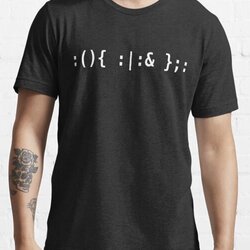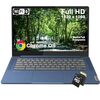Bits of Linux: 2015 #8
In this edition: Linus Torvalds on Git, what people miss from Linux, how software names came about, comparison of Unix shells and more.
📰 Articles
Linus Torvalds interview about Git
Starting a project like Linux is by itself more than a lifetime achievement for a programmer, but not for Linus Torvalds, who also created Git 10 years ago. In this interview Linus talks about why he created Git and why a Git-like system is essential for Linux Kernel development.
Interestingly, it took only a day for Git to become self-hosting so that you can see almost the entire history of the Git source code in the Git git repository itself.
You can actually see how it all took shape in the git source code repository, except for the very first day or so. It took about a day to get to be "self-hosting" so that I could start committing things into git using git itself, so the first day or so is hidden, but everything else is there.
💬 Discussions / Q&A
What one program would you port to Linux?
Pyroven asked this question being a new Linux user, who misses the role-playing game Skyrim. The most important missing pieces of software according to the respondents are not games though, but applications used for work, such as AutoCAD, Adobe products and MS Office.
Personally, I don't rely on software that is not available on Linux, but I see that ports of these commercial tools would have a big impact on Linux adoption on desktops and laptops.
Why do many webdevs use Mac OS instead of Linux?
michaelpb asked on Reddit why many web developers use Mac OS and not Linux when their target environments are Linux servers. He points out that the often heard it just works argument reeks of confirmation bias and that Linux distros have better package managers.
The discussion received hundreds of comments giving reasons such as no interest in tweaking the os, retina displays, battery life, consistent multi-monitor support, availability of commercial software like Excel and Photoshop.
There are certainly reasons to not use Linux in a professional setting, but I think that many developers who use Mac OS could work just as well or even better using a Linux system.
Should people who don't care about FOSS philosophy use Linux?
This question was asked by tomtomgps on Reddit and unsurprisingly most people who commented think they should, so do I. Even though I consider the principles behind open source to be important, I think you should be pragmatic about the software tools you use, i. e. use the best tool for the job.
Why are Linux background processes called daemons?
A question asked by reddit_user8008 on Reddit. Apparently it is named after Maxwell's demon, a thought experiment created by the physicist James Clerk Maxwell to "show that the Second Law of Thermodynamics has only a statistical certainty", and was later retronymed as Disk And Execution MONitor.
💻 Linux Devices
New Dell XPS 13 with Ubuntu
A new XPS 13 developer edition is available from the Dell shop in the USA and Europe starting from US $949. Dell claims that it is the smallest 13" laptop on the planet and the first with a virtually borderless display. It runs the LTS Ubuntu release 14.04. The cheapest option is powered by an Intel Core i5-5200U Processor and comes with 8 GB RAM.
Aquaris E4.5 Ubuntu Edition
After several successful batch sales the Aquaris Ubuntu phone is now available in the European Union from bq's online store for €169.90.
📖 Open Source Projects / Resources
linux-samus - Linux kernel for Chromebook Pixel 2015
The linux-samus repository contains quick-and-dirty patches to mainline Linux with support for the Chromebook Pixel 2015 (Samus) borrowed from Chromium OS. The project is meant to fill the gap until the mainline kernel has proper support for the latest Pixel models.
Explain shell commands and options
The Explain project is similar to the explainshell tool featured in the last Bits of Linux edition, with the distinction that it is a command-line tool itself as opposed to a Web based tool. You use it by prepending the word explain to the command you want to learn about, e. g.:
$ explain ls -alh --author
ls - list directory contents
-a, --all
do not ignore entries starting with .
--author
with -l, print the author of each file
-h, --human-readable
with -l, print sizes in human readable format (e.g., 1K 234M 2G)
-l use a long listing format
For additional information check out this Reddit thread started by the author of Explain.
Etymology of software names
The WhyTheName page in the Debian Wiki lists hundreds of software packages with descriptions on how their partly cryptic names came about.
Did you know for example that Z shell was named after the login zsh used by Zhong Shao, a colleague of its original developer or realize that aisleriot is an acronym of solitaire?
Comparison of Unix Shells
hyperpolyglot.org is an awesome resource for computer language nerds featuring several comparison pages for programming languages and tools. One of those pages compares language features of the Unix shells Bash, Fish, Ksh, Tcsh, Zsh. Below you see a screen of the grammar comparison, but the page offers a lot more interesting information.

😎 Fun Stuff
xkcd 1508: operating systems
In xkcd 1508 author Randall Munroe charts the operating systems he has used and predicts the future assuming that human civilization will end when DOS stops working because of its date and time representation, but what about the Year 2038 problem?

Bash Fork Bomb T-Shirt White Print
How to create a fork bomb to crash a computer system? Use this cryptic bash command:
:(){ :|:& };:
A t-shirt with the code for a Bash fork bomb printed in a white monospace font.
Bits of Linux is a bi-weekly round-up of interesting articles, discussions, Q&A, open source software projects, new Linux devices and reviews as well as a dose of fun stuff related to Linux, that have been published or I have discovered during the past 2 weeks. To not miss posts in this series, subscribe to the Bits of Linux RSS feed.
To be informed of new posts, subscribe to the RSS feed or follow Linux Netbook on Facebook.
Affiliate Disclosure: External links on this website may contain affiliate IDs, which means that I earn a commission if visitors make a purchase via such a link. For details, see the disclosure page.




